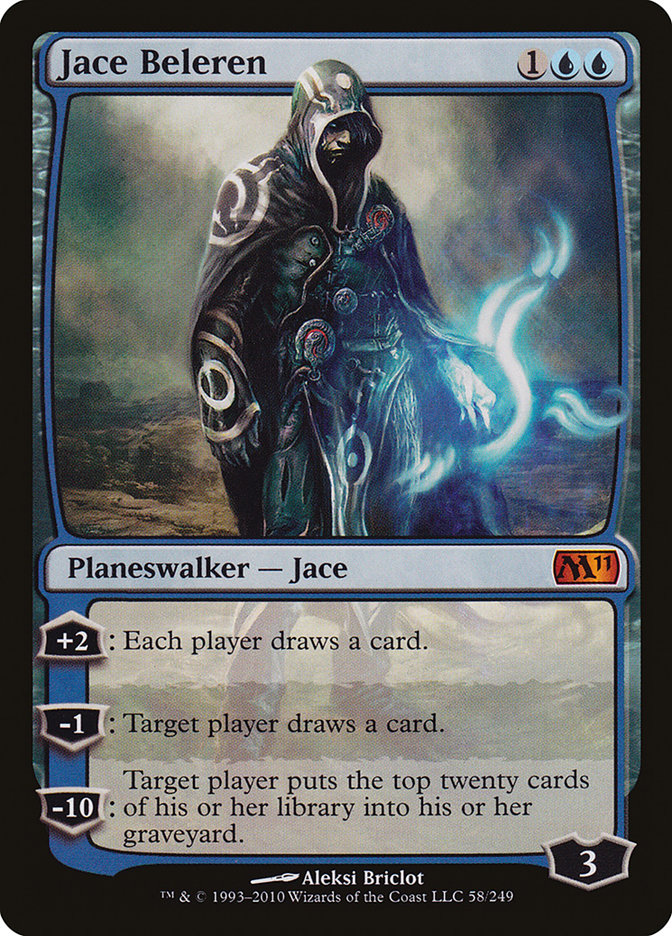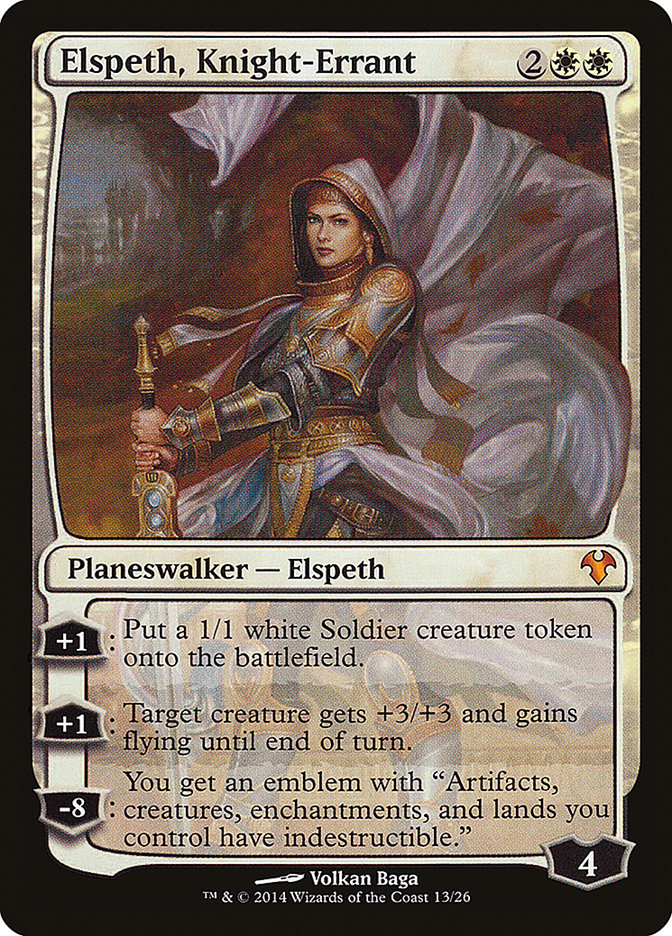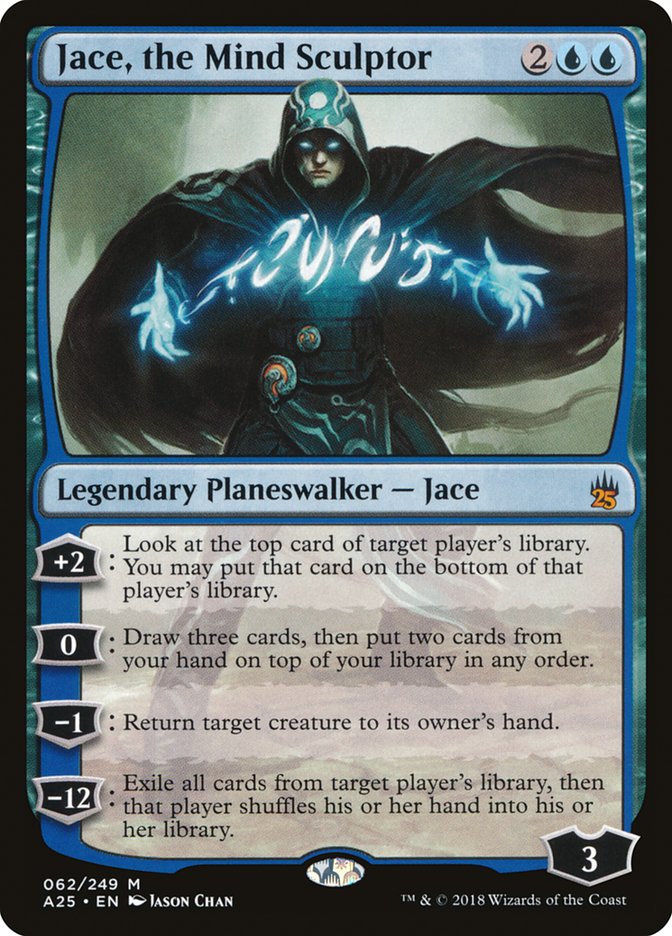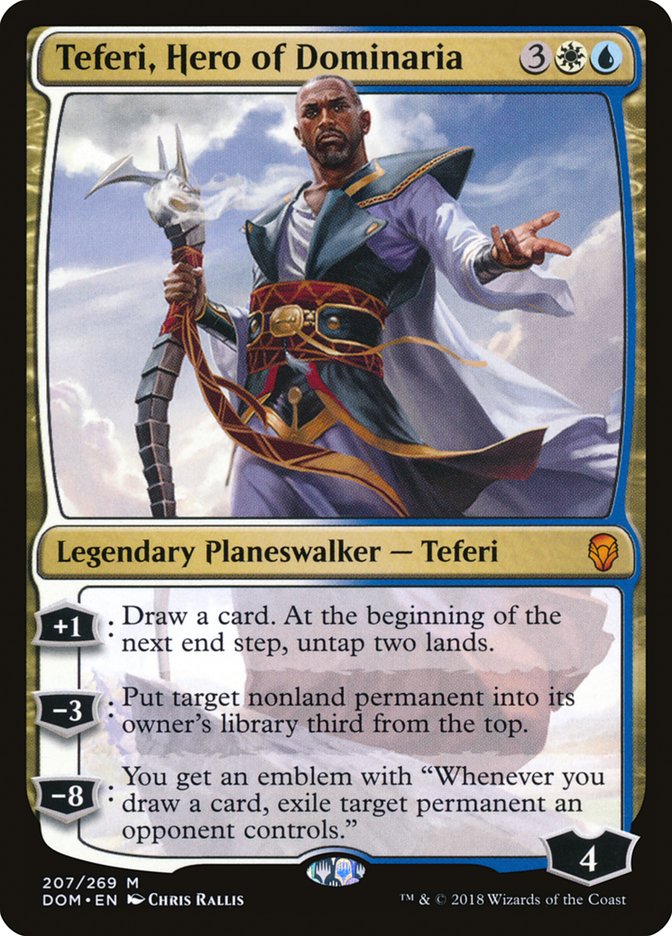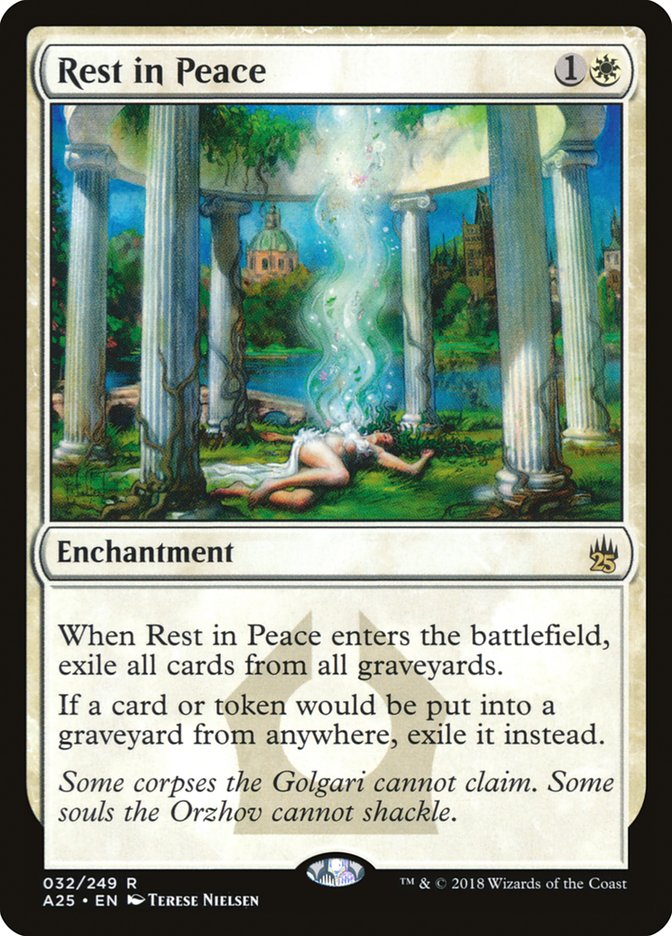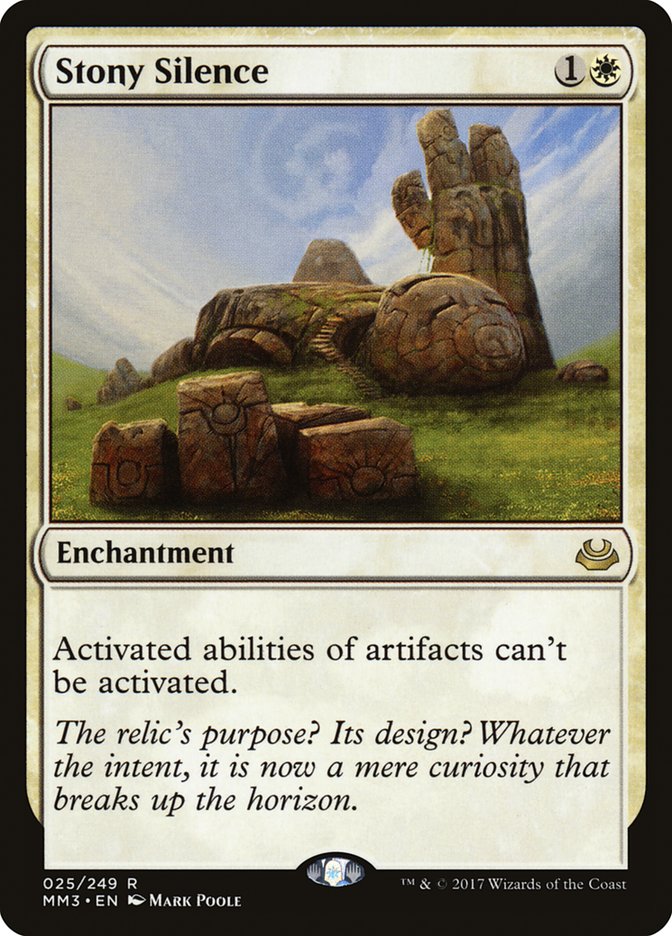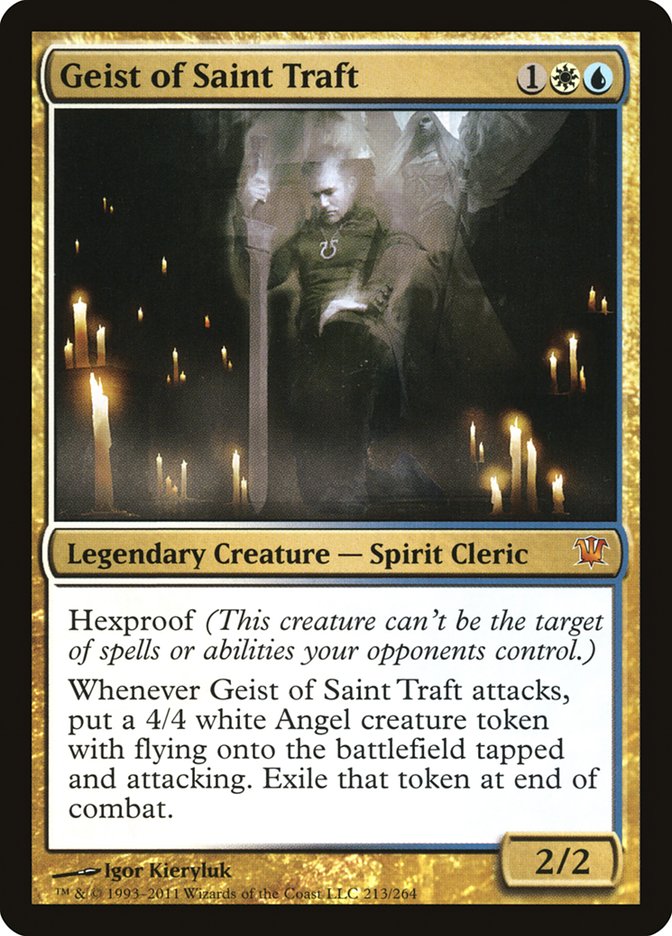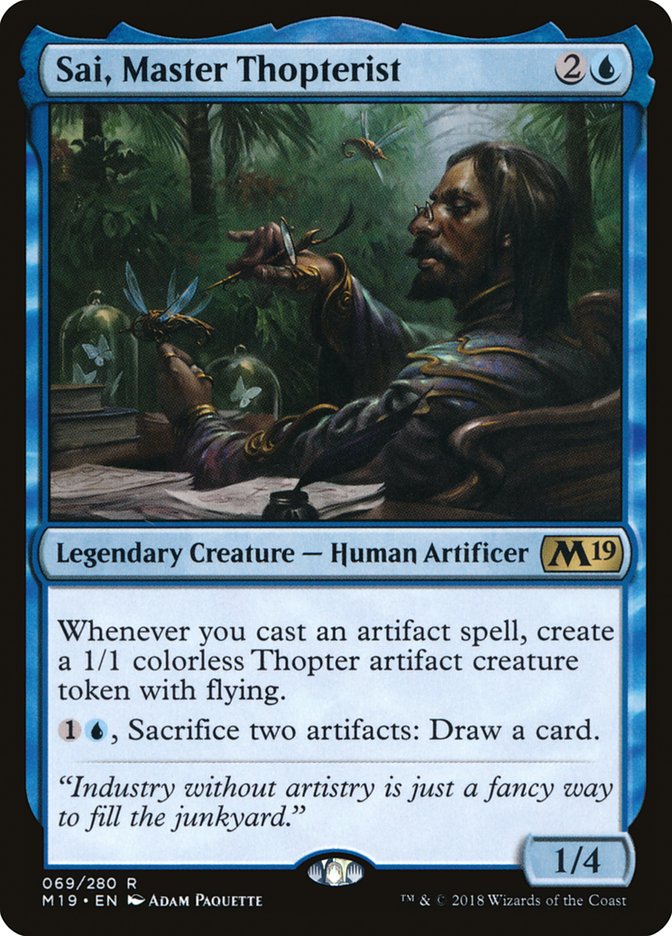Standard is all the rage these days and for good reason.
The format is
healthy and new, giving the masses a refresher from a Kaladesh era
riddled with flaws. Multiple bannings, combined with a multiple-year
tenure, was enough to push some people out of the Standard competitive
scene. Even though there was a significant level of negativity associated
with one of the longest-running formats of all time not too long ago, it
isn’t going anywhere. The rotation aspect gives us all hope when the format
begins to make us irritable with constant, oppressive redundancy. Let’s be
honest – it also keeps the lights on at Wizards of the Coast headquarters.
This means when the format is junk, they should have a vested interest in
making sure it improves. Sets are planned far in advance; however, I have a
funny suspicion that some last-minute edits have been made.
I’ve written a few Standard articles in a row, and today I want to talk to
my Modern people out there. We have an upcoming Modern event this weekend
when the SCG Tour lands in Dallas. I have a lot of work to do in Standard,
deciding if Esper Control will take a backseat to Jeskai Control, but
Modern has two polished options at my disposal. A war wages in my mind
whenever I must decide between the two decks that have my fingerprints on
their original development. On one hand, Azorius Control has a large chunk
of my heart as reserved real estate.
I played it a few years after Modern became an official format, qualifying
for the Pro Tour toward the end of my killer SCG Tour run. This was many
years ago in a simpler time, when I could play two maindeck copies of both
Jace Beleren and Elspeth, Knight-Errant, only to receive minor teasing.
After defeating Affinity seven times in that event, I finished in tenth
place with a 13-2 record, making Azorius Control my original love in
Modern. The deck has evolved quite a bit since then, adopting the hip
miracle strategy and becoming a pillar of Modern. I would always debate
with my fellow Azorius Control enthusiasts, making it clear that the deck
wasn’t viable with Jace, the Mind Sculptor, but after tireless campaigning,
the legend was freed, and our pet deck is one of the decks to beat.
Control is, and will always be, my weapon of choice, but I have quite a
history of developing combo decks that are considered janky and fringe. See
the Brian Braun-Duin quote below that sums it all up:
This is a rare treat. Shaheen is like 95% control, 4% weird
fringe combo, 1% mono red. Next time you play a combo deck will be in 2021.
It will be Tier 5, and you’ll go 7-3 with it.—
Brian Braun-Duin (@BraunDuinIt) February
4, 2018
Ironworks became my Pro Tour deck of choice after discovering the gorgeous
interaction between Myr Retriever and Scrap Trawler. Although I didn’t
invent Ironworks, the deck was mildly unplayable without that pivotal
piece. Pascal Maynard was my teammate piloting the original version, and
although he was crushing opponents at that GP, it became much too easy to
disrupt. Simple removal spells were tough to beat, as well as the
overpowered hate cards that began popping up in people’s sideboards. I
didn’t want to give up on the deck, so I hit the lab and found the diamond
in the rough.
Since then, Matt Nass crushed a couple GPs and the deck has moved well out
of the fringe column that my combo decks tend to rest in. For reference, a
moment of silence and as a fun trivia game, the following list of my Pro
Tour combo decks that never made it:
- Blink Riders (Standard)
- Azorious MIndslaver Tron (Extended)
- Blink Riders 2.0 (Block Constructed)
- Mass Polymorph (Standard)
- Protean Hulk Combo (Modern)
The reason for this trip through memory lane is to give context to my great
readers. When I chose Ironworks before, it wasn’t a betrayal to the control
gods. I have a little of that combo blood flowing through my veins and when
the format is unpleasant for control, I try to find an alternative plan.
For all of you playing Modern this weekend in Dallas, control is not in
dire straits. The best spot in Modern is whatever you’re most comfortable
with. I could tell Jonathan Rosum that Jeskai Control is heinous until I’m
blue in the face, but he’ll ignore me and Top 8 the tournament. There’s so
much value in choosing a deck that you’re heavily proficient with in this
format. None of the decks are running away with the format, but there’s an
elite club that hangs out in the tier 1 VIP section.
It would be foolish to enter the Modern arena without playing a deck that
has game against these decks:
- Humans
- Mardu Pyromancer
- Jund
- Hollow One
- Burn
- Dredge
- Mono-Green Tron
- Azorius Control
The moment of truth for our decision, between combo or control, is which
piece of this metagame will pop up in Dallas. At this point, I am leaning
toward Azorius Control.
Creatures (4)
Planeswalkers (5)
Lands (25)
Spells (26)

When a metagame is this diverse, control is usually the worst option to
select. Luckily for us, this king of the hill club contains very similarly
defined decks. Modern has always had the illusion of diversity, with eleven
different aggro decks dominating. Now that control packs a punch, those
numbers aren’t going to be that outrageous again. There are still lots of
explosive, hyper aggressive decks taking trophies, but players will face
against control decks in those tournaments on a regular basis. I tagged
Azorius Control at the bottom of that list because it doesn’t put up the
best results on the SCG Tour. We’ve seen it make the elimination rounds,
but it hasn’t been able to close as well as others. You’ll face it, or
other control variants, multiple times in a fifteen round competitive
tournament though. It’s one of those decks that some fanatics of the
archetype cannot put down and when it decreases in power level, players
toss a few Lightning Bolts back in to get the job done.
For SCG Dallas, the mirror match must be respected when developing the best
sideboard configuration. In Modern, I have usually ignored the matchup
because there were so few control players in circulation. With the
unbanning of Jace, the Mind Sculptor, the deck has emerged as a top
contender. There was a great deal of doom and gloom when our planeswalker
broke out of its bonds. Control decks, especially those in older formats,
took a bit to adapt to the wide metagame. Even though the Modern top decks
are all aggro or combo, they’re all hated out in different ways. Eventually
we figured out that Terminus was the final piece of the puzzle, and I
foresee more Azorius Control decks taking titles soon.
I really like this version of Azorius Control, more than previous versions
that made the Top 8 of a couple European GPs. The combination of Teferi,
Hero of Dominaria and Jace, the Mind Sculptor brings happiness to my heart.
Remand is a neat addition, giving additional shots at destroying an
opponent during their turn with a well-timed miracle. Sphinx’s Revelation
is the only card I would remove from the maindeck, as it’s often
unnecessary with all these card advantage machines. Five planeswalkers,
Search for Azcanta, and the onslaught of cantripping spells makes it
unnecessary to use one of the most beautiful spells in Standard’s history.
With the emergence of Dredge containing Creeping Chill, I would feel safer
about a third copy of Rest in Peace. It’s a terrifying matchup even with
Terminus, because of the explosive nature of the deck, but when the stars
align and the Terminus hits them, an illusion of safety appears. The
reality is the veteran Dredge opponent game 1 can mitigate their losses
early, get you low enough on life total, and simultaneously attack via a
threatening Conflagrate as well as a modest army. Having multiple Lightning
Helix that cost nothing to zap you doesn’t hurt their cause also.
I’d keep the other two copies of Geist of Saint Traft in the sideboard for
this weekend. These two slots can help you against combo and big mana
decks, as well as the control mirror. Both decks are likely to appear on
your match slip and its best to have a versatile card like this at your
disposal. The rest of the sideboard is great, playing a variety of cheap
interaction, lifegain for Burn, and Stony Silence for the artifact wielders
out there. Even though I’d play Azorius Control this weekend in Dallas, I’m
still confident that Ironworks is the best combo deck in the format. I
didn’t add it to the decks to beat because I don’t believe people respect
its legitimacy still. The deck is clunky looking, tough to pilot, doesn’t
put up the best results outside of Matt Nass, and is easy to hate out in
theory.
Creatures (6)
Lands (16)
Spells (38)

This list is close to where I’d be this weekend if I decided to answer the
combo call. The maindeck is card-for-card my list from Grand Prix Las
Vegas, minus one Forest for an Aether Hub. There are other players that
have had the courage to tinker with the main engine of the deck, including
some silly Spine of Ish Sah nonsense, but such changes are misguided. At
the Pro Tour and subsequent GPs, game 1 losses were very rare. The beauty
of these all-in style decks is that you tend to take the first game with
ease and then you usually must scrape by in the sideboard games. With a
game 1 win rate that high, removing vital elements from the maindeck is
unadvised. The sideboard is the location for innovation, with multiple flex
spots that I still haven’t been able to crack.
Recently, Ironworks players have been dabbling in blue for Sai, Master
Thopterist. I admit that it has been fantastic, giving game against decks
with powerful answers to the combo in games 2 and 3. I’ve always loved
Dispel as an option, because it hits Surgical Extraction on top of
counterspells, unlike Guttural Response. With the addition of these blue
spells, the manabase does have to change slightly from this list. I’d add
back the third Aether Hub, as well as cut a Buried Ruin for a fourth copy.
Two copies of Buried Ruin have been adequate for me and has made the blue
spells easier to cast. I’ve also cut Ghirapur Aether Grid from this list
and added a copy of The Antiquities War and a second copy of Defense Grid.
These changes seem minor, but they’re very important. The sideboard of
Ironworks is the spot for ingenuity, trying to outwit your opponents and
their known responses. We all know they’re going to bring in Rest in
Peace/Stony Silence, Surgical Extraction, Disenchant effects, and/or cheap
counterspells. Knowing this information prior to entering a tournament
gives us in edge in deckbuilding. The blue sideboard cards give us strong
game against any of that described hate thrown our way, which makes
Ironworks a great choice for this weekend as well.
I’m truly on the fence about which deck I’d play, but I can hear the
control war drums beating louder and louder…


